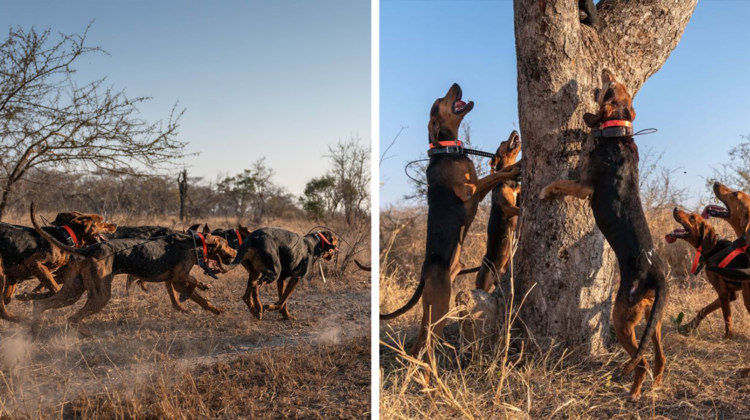
A dog pack has been taught to defend South Africa’s wildlife, and they have already protected 45 rhinos from poaching.
Many different canine breeds, ranging from beagles to bloodhounds, have been deployed to defend endangered species from poachers. The canines begin training at birth and learn how to manage all of the stresses of real-world operations before starting work at 18 months old.
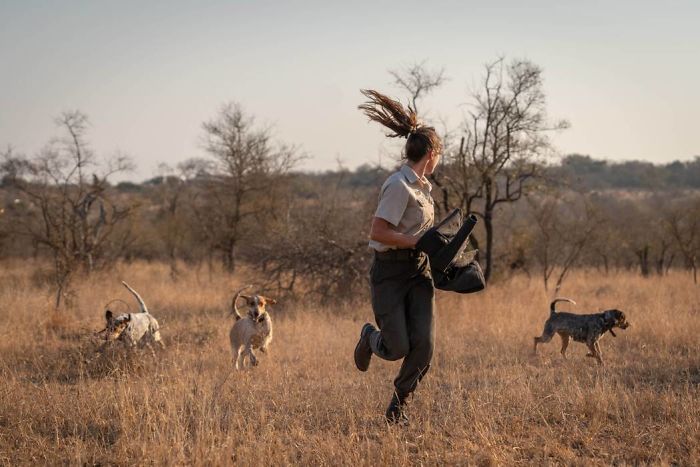
Sean Viljoen, 29, of Cape Town, South Africa, posted photos of the dogs in action at the Southern African Wildlife College in the Greater Kruger National Park. He is the proprietor of the Conservation Film Company, which attempts to convey the experiences of individuals on the frontlines of conservation, sharing their stories of optimism.
‘The data we collect for our applied learning initiative aimed at educating best practice reveals we have stopped about 45 rhinos from being murdered since the free tracking dogs became active in February 2018,’ said Johan van Straaten, a K9 Master at the institution.
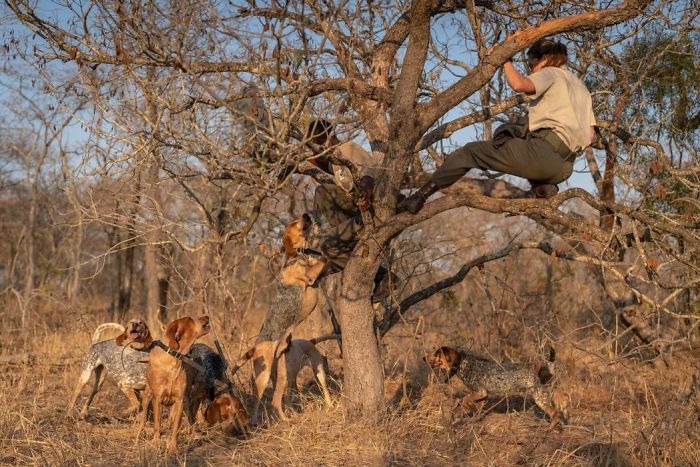
‘In the regions that the Southern African Wildlife College patrols, the success rate of the dogs is over 68% utilizing both on and off leash free tracking dogs, compared to 3–5% with no canine capability.’
‘The game changer has been free tracking dogs, who can follow at far quicker rates than humans in terrain where even the greatest human trackers would lose spoor.
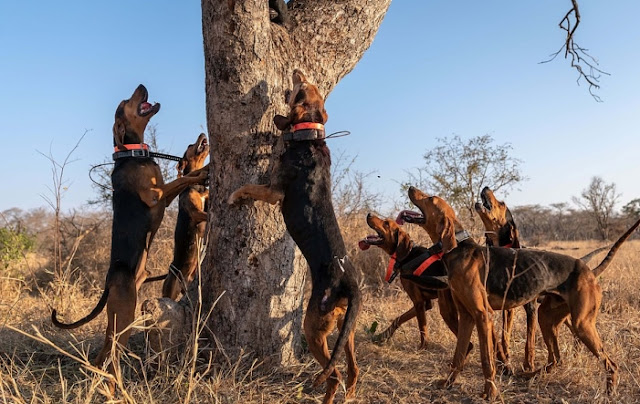
As a result, the project is assisting in the survival of southern Africa’s unique biodiversity and animals, particularly rhinos, who have been badly hit by wildlife crime. South Africa is home to almost 80% of the world’s rhinos.
‘Almost the last decade, over 8,000 rhinos have been poached, making it the country hardest impacted by this poaching onslaught,’ says the World Wildlife Fund.
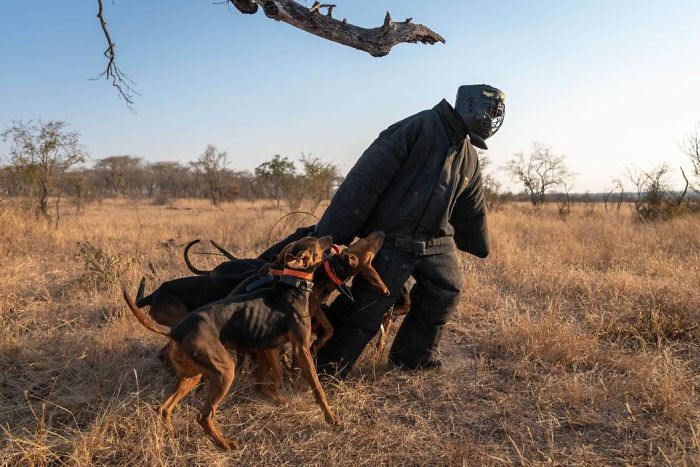
The canines, which include Texan Black-and-Tan Coonhounds, Belgian Malinois, Foxhounds, and Blue Ticks, have been taught to ‘assist essential counter-poaching measures’ such as free tracking, incursion, detection, patrol, and apprehension dogs. Precious Malapane and Robynne Wasas, both dog handlers, are members of the ‘K9 unit quick reaction’ squad and assist in the training of anti-poaching dogs. ‘They begin training from birth and are socialized from a very young age,’ Johan van Straaten remarked.
‘They learn to track, bay at a human in a tree, and obey simple commands.’
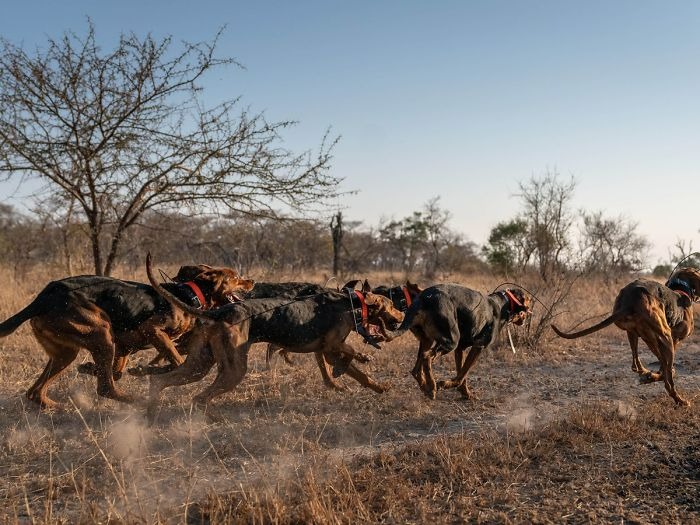
‘They learn to track, bay at a human in a tree, and obey simple commands.’
‘At six months, we formalized all of that training – they have the essential skill set to do the task at a younger age, but they are not mature enough to manage all of the stresses of real operations.’
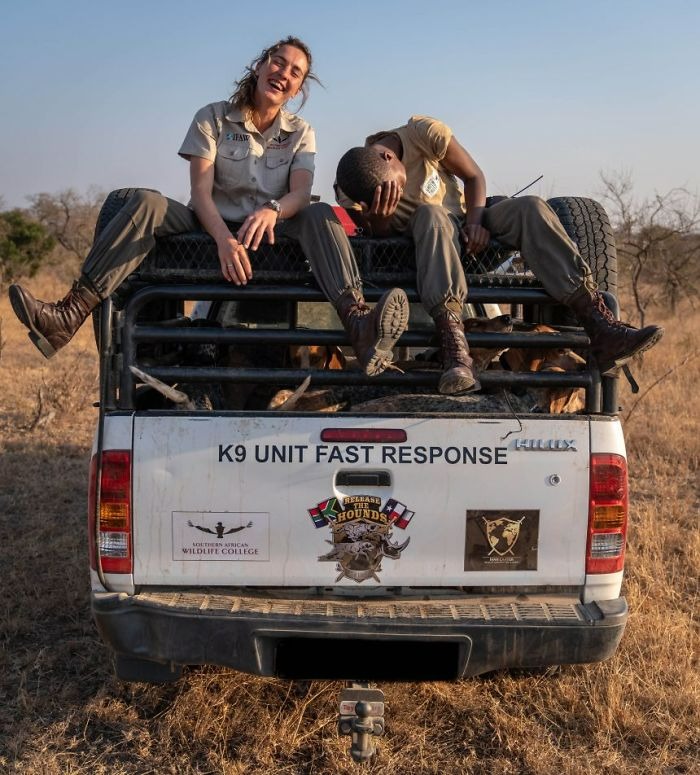
‘Depending on a variety of circumstances, dogs become operational at the age of 18 months.’
According to the Department of Environment, Forestry, and Fisheries, 594 rhinos were poached in the country in 2019, according to Save The Rhino.
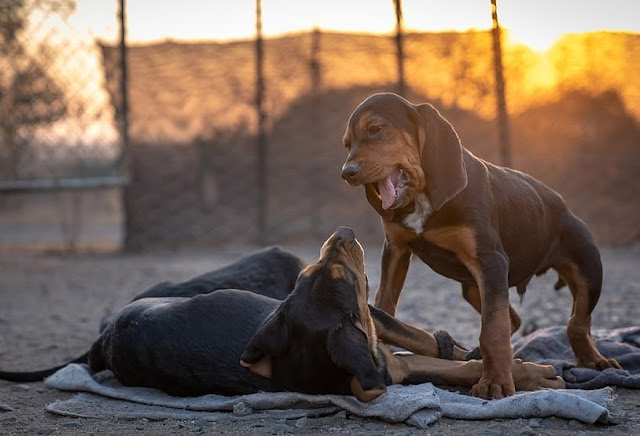
Poaching peaked at 1,215 in 2014, however for the sixth year in a straight, rates have decreased.

Wonderful. Protect our wildlife
How does one send a cash contribution to the training of the dogs?
Brilliant work! I hope other countries with rhinos will pick up on this! But also it’s too late! The people using ivory must be stopped! The trades must be stopped! The buyers stopped! You are shutting arable door after the horse has gone! EDUCATION!!! And crippling fines needed!
This is fantastic. How are they trained not to bother people just wandering around sniffing the roses? If they scent no gunpowder, they leave you alone? Is there a mortality rate to the dogs from predators such as lions, hyena? Very interesting solution.